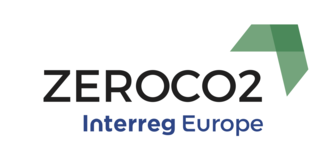On Friday, the 24th of February 2017, the Regional Workshop - 3rd Stakeholder’s meeting took place at the Conference Centre of MAICh, Crete, Greece, in the framework of the project "Promotion of near-zero CO2 emission buildings due to energy use / ZEROCO2 ".
The participants were 34 from different authorities such as:
Region of Crete, Regional Development Fund of Crete, Regional Energy Agency of Crete, Municipality of Chania, Municipality of Platanias, Forest Directorate of Chania-Decentralized Administration of Crete, Mediterranean Agronomic Institute of Chania, Technical University of Crete, Technological Institute of Crete, Orthodox Academy of Crete, Panhellenic Investors Association of Photovoltaics, Technical Chamber of Greece-West Crete Department, Hellenic Electricity Distribution Network operator S.A, Public Power Corporation S.A. – Department of Chania, Cooperative of Building Contractors in the Prefecture of Chania, Cooperative Bank of Chania, some SME’s that are activated in the energy sector such as Mills of Crete, Dynamis, AVEA, Heating & Air-Conditioning Centre of Crete and the Energy - Economy - Environment Modelling Laboratory Research and Policy Analysis.
At first, Mr. Angelakis Georgios, Researcher of MAICh and Local Coordinator of the Project, made a presentation regarding the objectives and progress of the European Project: “Promotion of near zero CO2 emission buildings due to energy use (ZEROCO2)” to the Local Stakeholders.
Then, the outcomes of the study of the Energy Planning of the Region of Crete were presented by the former Vice President of the Energy Regulatory Authority Mr. Miltiadis Aslanoglou, stressing that the energy demand of the island of Crete will be doubled by 2050. The expansion of renewable energy sources will provide solutions to the energy demand. The outcomes of the study were very useful for the implementation of the Regional Policy Report of the project, that was presented afterwards from Mr. Vourdoumpas I., Lecturer of Technological Institute of Crete and Technical Expert of the Project, together with the utilization of Renewable Energy Sources technologies (such as photovoltaics, biomass, heat pumps) to meet the energy needs of the buildings.
Then, each speaker, described the current situation of the utilization of the abovementioned energy technologies, emphasizing the strengths, weaknesses, opportunities and threats of each technology at a local and national level.
Mr. Plokamakis G., Section Manager of Hellenic Electricity Distribution Network Operator S.A focused on the photovoltaic systems and stated the Utilization of photovoltaics for the production of electrical energy to buildings. Mr. Markantonakis A., President of Mills of Crete S.A stated the utilization of olive biomass for heating buildings. Mr. Lavoutas Em., Engineer-Mechanic, Heating and Air-Conditioning Centre of Crete, stressed the use of heat pumps to meet heating and cooling needs of buildings and finally Mr. Papaeuthimiou Sp. Ass. Prof. - Department of Production Engineering and Management, Technical University of Crete, emphasized the need for an Intelligent water management to buildings.
After the end of the presentations, there was a discussion among the Local Stakeholders regarding the Regional Policy Report, the technology options of the region, cost-benefit analysis in order to prepare an Action Plan that will develop energy policies focused on the promotion of near zero CO2 emission buildings due to energy use.

